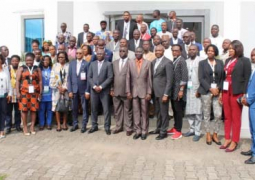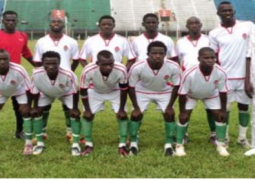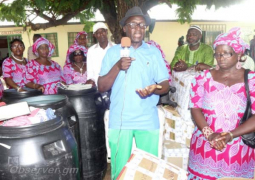The training, which targeted journalists drawn from the print and electronic media, was aimed at fostering collaboration between the meteorologists and the media as the department produces weather forecast on a daily basis.
Speaking at the opening ceremony, Amadou Saine, Permanent Secretary at the Ministry of Fisheries and Water Resources, said the training was the second of its kind all geared towards enhancing media practitioners with the requisite skills on weather forecasts and how to report about it.
Saine urged media practitioners to make best use of the training and disseminate the information gathered from it to the people.
For his part, Bernard Gomez, deputy director of water resources, noted that the climate is changing at a rate unprecedented in human history and will continue to do so for the foreseeable future.
According to him, the fifth assessment report of the intergovernmental panel on climate change shows that the atmosphere and the ocean are warm and the amount of snow and ice has diminished.
Gomez stated that as a result of our past, present and expected future emissions of greenhouse gases, his department is committed to climate change.
He said climate change effects will persist for many centuries even if the emission of the greenhouse has stopped, Gomez said climate change is exacerbating climate variability, leading to climate and weather extremes of the greatest socio-economic and developmental consequences around the world.
He added that despite the complexity of the climate system, the application of scientific knowledge has ensured that many a time, information on the future conditions of the atmosphere are known before they occur.
The reduction of climate shocks in The Gambia, he went on, would go a long way in supporting the national development process, and therefore information on future behaviour of the atmosphere is key in decision-making at individual and collective levels.
Oumy Khairy Ndiaye, the international consultant hired by the WMO, described the training as timely and important, saying it is important to support this programme as well as agro-meteorologist.
This, she said, can be done by getting support from the media, adding: “We all know 70% of the population is living in the rural area, meaning if they are informed they can even do more in agriculture.”




